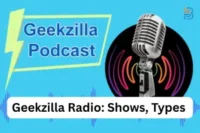Types of Interview Podcasts: A Comprehensive Guide
Published: 19 Nov 2024
Podcast interviews are a brilliant way to engage audiences, offering diverse content through unique voices and perspectives. Understanding different interview styles can help you create a podcast that resonates with the 5th-generation audience.
Here’s a breakdown of types of interview podcasts, inspired by the best practices and innovative approaches used in the industry.

1 Expert Interviews
Expert interviews are ideal for providing valuable insights into a specific field. Characteristics The guest is an industry expert, thought leader, or specialist. Topics focus on solving problems or explaining complex concepts.
.Become a Pro Podcast Interviewer.
Why It Works:
Audiences love learning from credible sources, making these episodes highly shareable.
Example Questions:
“What are the biggest misconceptions about [topic] in your industry?”
“What tips would you give to beginners?”
2 Storytelling-Focused Interviews
Storytelling-focused interviews revolve around the art of sharing personal or professional narratives. These interviews engage listeners by diving into meaningful experiences, challenges, and life lessons of the guests.
The format creates an emotional connection, making the content relatable and memorable. With a focus on authenticity, these episodes allow the audience to see beyond surface-level topics, resonating deeply through real, human stories. 7 Types of Interview Podcasts This style is ideal for inspiring and captivating listeners through the power of storytelling.
Characteristics:
- Centred on compelling narratives.
- Often evoke emotions and foster reliability.
- 7 Types of Interview Podcasts
Why It Works:
Stories create an emotional connection and are memorable for the audience.
Example Questions:
“Can you share a turning point in your journey?”
“What’s the most challenging moment you’ve faced, and how did you overcome it?”
3 Panel Discussions
Multiple guests discuss a single topic, offering various perspectives.
Characteristics:
- Usually includes a moderator to maintain flow.
- Diverse opinions create dynamic and engaging conversations.
Why It Works:
- Panels cater to audiences who enjoy debates or collaborative thinking.
- Types of Interview Podcasts
Tips for Hosting:
- Prepare guiding questions to ensure equal participation.
- Focus on balanced airtime to keep the discussion engaging. interview someone for podcast
4 Q&A-Based Interviews

- In these episodes, the host poses audience-submitted questions to the guest.
- Characteristics:
- Interactive and community-driven.
- Covers a wide range of topics based on listener interests.
- Types of Interview Podcasts: A Comprehensive Guide
Why It Works:
- This type builds trust and loyalty as the audience feels included.
- Pro Tip: Use social media or polls to gather questions ahead of time.
5 Hybrid Episodes
- Combines interviews with other content formats, such as solo commentary or narration.
- Characteristics:
- Mixes expert insights with the host’s opinions.
- Includes pre-recorded clips or audience reactions. 7 Types of Interview Podcasts
Why It Works:
Keeps the format fresh and versatile, appealing to a broader audience.
6 Rapid-Fire Interviews
- Quick and snappy episodes that focus on short, direct answers.
- Types of Interview Podcasts
Characteristics:
- Fast-paced, with little to no tangents.
- Often includes fun, light-hearted questions.
- 7 Types of Interview Podcasts
Why It Works:
- Perfect for busy listeners who prefer concise content.
- Example Questions:
- “What’s your go-to productivity hack?”
- “What’s the last book you couldn’t put down?”
7 Topical Deep Dives
Focused interviews on a trending or niche topic. Topical deep dives focus on exploring specific subjects or themes in great detail. This interview style provides an in-depth analysis of trending, niche, or complex topics, offering listeners valuable insights.

Why It Works:
Great for listeners seeking thorough insights or solutions to current problems.
What Are Topical Deep Dives?
Topical deep dives are interviews or episodes that explore a specific theme, trend, or niche topic in great detail. These episodes aim to provide a comprehensive understanding, actionable insights, and valuable perspectives on a single subject, making them highly informative and engaging.
Why Topical Deep Dives Work
- Depth of Knowledge: Offers listeners a deep understanding of a subject they care about.
- High-Value Content: Provides practical takeaways and expert insights that solve real-world problems.
- Timeliness: Explores trending topics or pressing issues, making the content relevant.
- Audience Engagement: Attracts a niche audience passionate about the topic, building loyalty.
- How to Execute Topical Deep Dives
Choose the Right Topic
- Relevance: Pick topics that resonate with your audience and align with your podcast’s theme.
- Timeliness: Focus on current trends or emerging issues.
- Complexity: Select subjects that require detailed exploration to provide value.
Examples:
“The Future of Renewable Energy in Smart Cities”
“How AI is Shaping the Job Market in 2025“
“Understanding Blockchain Beyond Cryptocurrency”
Select the Right Guest
Choose someone with deep expertise or direct experience in the topic.
Examples: Industry leaders, researchers, niche experts, or innovators.
Example Guest Profiles:
- A cybersecurity specialist for a deep dive into data breaches.
- A sustainability advocate for renewable energy discussions.
- A tech entrepreneur for insights on AI’s role in startups.
Prepare an In-Depth Framework
Research the topic thoroughly to craft intelligent, layered questions.
Use a mix of broad, exploratory questions and specific, probing questions to uncover detailed insights.
Example Framework:
- Introduction: Set the stage with a brief overview of the topic.
- Expert Insights: Ask the guest to explain key concepts or trends.
- Real-World Applications: Discuss how the topic is applied in industries or daily life.
- Challenges and Solutions: Address pain points and how to overcome them.
- Future Outlook: Explore predictions and implications.
Structure the Episode
- Keep the conversation focused and logical, progressing from basic concepts to advanced details.
- Break the episode into sections:
- What Is It? Define and explain the topic.
- Why It Matters? Discuss its importance and impact.
- How It Works? Dive into technical or procedural details.
- Future Potential? Speculate on upcoming developments.
Conclusion
Choosing the right interview style depends on your podcast’s goals and audience preferences. For 5th-generation listeners, prioritise authenticity, engagement, and value-driven content. Blend these styles to keep your episodes dynamic and relatable.
Questions:
| What Type of Interview Podcast Should You Host? |
|---|
What’s your primary goal as a podcast host?
Mostly B’s: Storytelling-Focused Interviews Mostly C’s: Panel Discussions Mostly D’s: Q&A-Based Interviews Mostly E’s: Hybrid Episodes Mostly F’s: Rapid-Fire Interviews Mostly G’s: Topical Deep Dives |
There are several types of interview podcasts, each offering a unique approach to interviewing guests.
These include: Storytelling-Focused Interviews: This format revolves around guests sharing personal experiences,
providing listeners with emotional and relatable content. Expert Interviews: Experts in a specific field discuss trends, tips, and valuable insights relevant to their industry.
Panel Interviews: A group of guests shares their opinions on a particular topic, providing varied perspectives.
Q&A Interviews: The host takes questions from the audience and asks the guest, making the format interactive and engaging. One-on-One Interviews:
The host interviews a single guest, allowing for deep, personalize discussions. Theme-Based Interviews: Focused on specific topics or niches, these interviews dive deep into particular areas of interest. Casual Conversations:
Light, unscripted interviews that feel like friendly chats, making them relaxed and easy to listen to.
The right type of interview podcast depends on your audience’s interests and your podcast’s goals. For example, if your audience loves in-depth learning, expert interviews or theme-based interviews could work well. For a more casual vibe, casual conversations or storytelling-focused interviews might be better. Consider the tone and level of engagement you want to achieve when selecting the interview format.
Storytelling-focused interviews are highly effective because they build an emotional connection with listeners. By featuring personal, real-life stories from guests, this format makes content relatable and memorable. 7 Types of the These types of interviews are engaging, as they often evoke strong emotions, making listeners more likely to remember the podcast and share it with others .7 Types of Interview Podcasts
Proudly powered by WordPress
- Be Respectful
- Stay Relevant
- Stay Positive
- True Feedback
- Encourage Discussion
- Avoid Spamming
- No Fake News
- Don't Copy-Paste
- No Personal Attacks
- Be Respectful
- Stay Relevant
- Stay Positive
- True Feedback
- Encourage Discussion
- Avoid Spamming
- No Fake News
- Don't Copy-Paste
- No Personal Attacks






